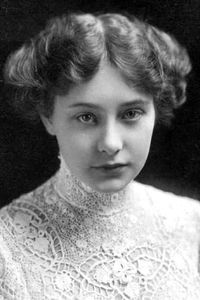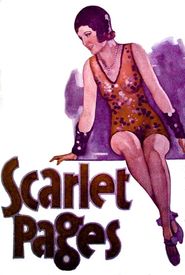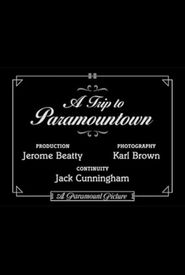Elsie Louise Ferguson, a celebrated American stage and film actress, made her mark on the entertainment industry with her remarkable talent and captivating presence. Born on August 19, 1883, she would go on to leave an indelible mark on the world of cinema and theater, leaving a lasting legacy that would be remembered for generations to come.
As her fame reached new heights, multiple film studios extended lucrative contracts to her, attempting to secure her services for their productions. However, Elsie was a woman of discerning taste, and she declined all of these offers until the opportunity arose to work with the respected French director, Maurice Tourneur.
Tourneur, renowned for his exceptional skill in crafting compelling stories and bringing his characters to life on the big screen, approached Elsie with a unique and intriguing offer. He wanted her to star in the lead role of his 1917 silent film, Barbary Sheep, as a sophisticated and refined patrician. The prospect of working with such a talented director and bringing this complex and captivating character to life was too enticing for Elsie to resist, and she ultimately accepted the role.
The result was a cinematic masterpiece that showcased Elsie's exceptional acting abilities and left a lasting impression on audiences. Her performance in Barbary Sheep cemented her status as a leading lady of the silver screen, and she continued to make a name for herself in the world of film and theater for many years to come.
As the curtain closed on the tragic loss of her esteemed Broadway patrons, Henry B. Harris, whose untimely passing in the devastating Titanic disaster of 1912 left a lasting impact, and Charles Frohman, whose life was cut short in the Lusitania sinking of 1915, a profound sense of vulnerability may have compelled Ethel Ferguson to reevaluate her career trajectory and consider alternative opportunities, ultimately leading to her decision to accept film roles. It was against this backdrop of personal and professional uncertainty that Adolph Zukor, a visionary producer and director, extended an 18-film, three-year contract to Ferguson, marking a significant turning point in her professional journey.
In the year 1921, a significant agreement was reached between the talented actress and Paramount Pictures, resulting in a two-year contract that would see her appear in a total of four cinematic productions.
Following a brief stint in Hollywood's cinematic spotlight in 1925, the esteemed performer, Florence Ferguson, chose to revisit her theatrical roots on the esteemed Broadway stage. Yet, in 1930, she made a triumphant return to the silver screen, starring in the talkie, "Scarlet Pages", which would ultimately prove to be her final foray into the world of film. Despite receiving widespread acclaim for her voice, at the tender age of 47, Ferguson found herself no longer the radiant and youthful beauty that had captivated the hearts of her devoted fans in her earlier years.
Elsie Ferguson's life came to a poignant close on a somber day in 1961, as she bid farewell to the world at Lawrence Memorial Hospital, nestled in the charming town of New London, Connecticut, leaving behind an enduring legacy that would forever be etched in the annals of theatrical history, a testament to her extraordinary gifts as a thespian, whose captivating stage presence and unwavering dedication to her craft had captivated audiences for generations.
---
Biography:
Elsie Ferguson was a renowned American actress, born on January 28, 1883, in New York City. She began her acting career on the stage, making her debut in 1902 with the St. Louis Municipal Opera Company. Ferguson's talent and charisma quickly earned her a reputation as a leading lady, and she went on to perform with many of the leading theater companies of the time, including the Ziegfeld Follies.
Ferguson's breakthrough role came in 1915, when she played the title character in the Broadway production of "The Enchanted Moment." Her performance earned her widespread critical acclaim and cemented her status as a leading lady of the American stage.
Throughout her career, Ferguson appeared in numerous plays and musicals, including "The Passing Show of 1915," "The Passing Show of 1916," and "The Passing Show of 1918." She was particularly known for her portrayals of strong, independent women, and her performances were often praised for their nuance and depth.
Ferguson's career continued to thrive throughout the 1920s and 1930s, and she remained a beloved figure on the American stage until her retirement in the 1940s.


















